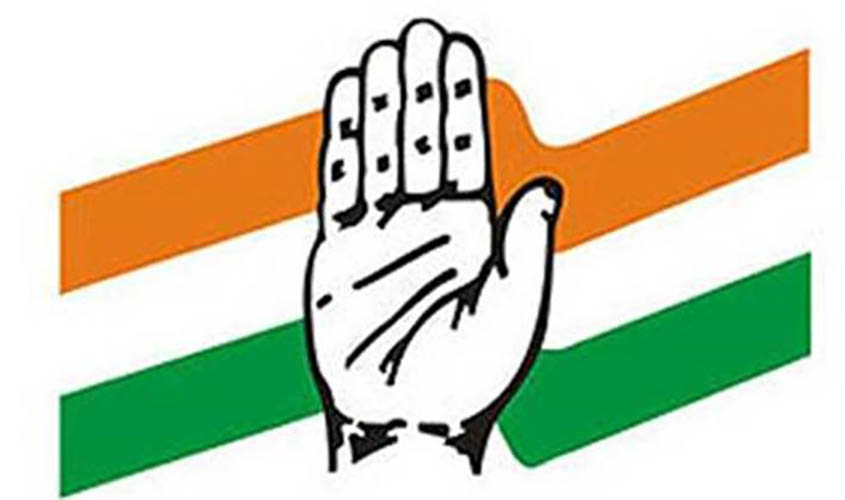The outcome of the Telangana Assembly elections has proved beyond any shadow of doubt that the Congress made a huge mistake by aligning itself with its one time archrival—the Telugu Desam Party (TDP). In fact, the association was suicidal for both, and facilitated the easy return of K. Chandrashekar Rao for another term of five years, in a state which was founded because of the Congress fixation to spite Jagan Mohan Reddy, son of former Andhra Pradesh Chief Minister, the late Y.S. Rajasekhara Reddy after the latter’s mysterious death in September 2009 in a helicopter crash. YSR had led the Congress campaign against the NDA and it was due to his immense contribution that the party came to power in 2004 and 2009, winning 29 and 33 seats respectively.
However, soon after his passing away, the party high command, for reasons best known to it, started hounding Jagan, resulting in his exit, and hastily announced the formation of the Telangana state, 20 minutes before midnight on Sonia Gandhi’s birthday, 9 December 2009. This controversial declaration was made by P. Chidambaram.
The debacle in Telangana ruined the otherwise superlative performance of the Congress, which in a straight face-off with the Bharatiya Janata Party in three Hindi speaking states, wrested control of Madhya Pradesh, Chhattisgarh and Rajasthan. The celebrations would have been more jubilant had the party won in Telangana, but an alliance with the TDP proved to be its undoing. Andhra Chief Minister Chandrababu Naidu, who had extended an olive branch to Rahul Gandhi in order to firm up the pre-poll arrangement, was positioning himself for bigger things, but the defeat obviously has been a massive setback for him. His ambition of being the king or at least the kingmaker, post the 2019 Parliamentary elections has been put on hold, for the time being. In addition, Naidu’s standing amongst top Opposition leaders has been certainly affected.
The Congress-TDP alliance was as untenable as the Congress tie-up with the Samajwadi Party was in the Uttar Pradesh Assembly elections of 2017. In UP, the Congress would have certainly performed much better on its own steam and this would have been true of Telangana as well. In fact, in UP, the Congress virtually decimated itself in more than 325 constituencies where it allowed Akhilesh Yadav to field candidates of his choice, including some who contested on the Congress symbol. This was the primary reason for the super showing by the BJP since the Congress votes shifted towards the saffron brigade in these 300-odd constituencies, with the workers and activists preferring Modi’s party to the SP and BSP, which for the past 25 years they had been opposing. The unprecedented victory of the BJP was thus not on account of demonetisation, as it was made out to be, but because the 6% Congress vote that gravitated towards it.
The lesson to be learnt from the Telangana and UP mistakes is that the Grand Old Party must not be in any hurry to forge alliances, but should utilise its experienced leaders to first test the waters. During the Shimla Conclave in July 2003, when the Congress for the first time decided to enter into association with other secular parties, to dislodge the NDA government led by Atal Bihari Vajpayee, it had a well thought through strategy. This political game plan was crafted by Pranab Mukherjee, Arjun Singh, Makhan Lal Fotedar, amongst other stalwarts. The deliberations at the Peterhoff Hotel were extensive, and the blue-print ensured that Sonia Gandhi emerged as the principal leader of the proposed coalition.
Since then things have changed drastically. The Congress organisation is both weak and vulnerable, and there are not too many leaders who have the same kind of experience and political acumen of those who at the time were advising the Congress president. Thus the present leadership has to take into account its own shortcomings and limitations before shaking hands with one time foes, without properly pondering over the ramifications of the entire exercise.
The victory in three states has put the Congress on a sound wicket, and it would be from a position of renewed strength that it would be able to cobble up alliances. Simultaneously, it has to be wary of political mavericks whose aim is to use the party to further their own ambitions. In 2004, after Sonia Gandhi declined to be the Prime Minister, Lalu Prasad Yadav, a key component of the UPA flexed his muscles and wanted the PM to be chosen by the allies. At this point itself, Fotedar told him bluntly that the PM’s position was non-negotiable, and it was for the Congress to figure out who was to be the PM nominee. When Sonia Gandhi decided on Dr Manmohan Singh and stated that he should be elected by the Parliamentary Party, it was Fotedar again who cautioned and advised her to review her decision. He said that it would be better if the Congress Parliamentary Party would authorise her to nominate someone of her choice as the PM since it would send a clear signal on who was the boss.
Therefore, it is for Rahul Gandhi to seek out clear-headed political strategists from amongst the party’s organisation to counsel him on how to handle the critical question of alliances. His miscalculations and oversight had cost him dearly when he engaged a political mercenary like Prashant Kishor ahead of UP and Punjab Assembly polls, and thus such erroneous decisions should not be repeated. Between us.

